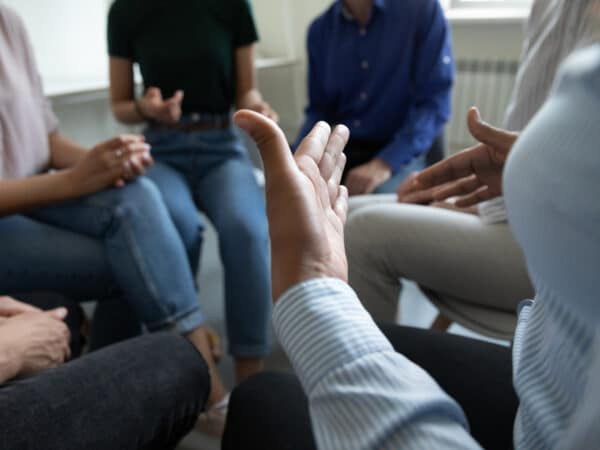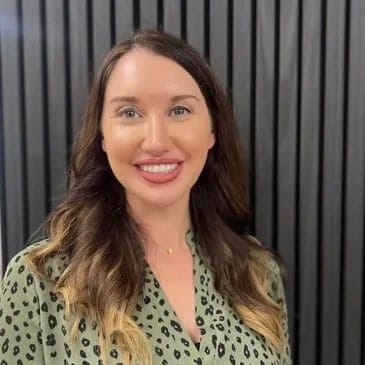Dual Diagnosis Treatment Centers Georgia
THE UNBRIDLED EXPERIENCE
We are standing by ready to help. Please take the first step on your new journey and contact us. All communications will be confidential and discreet.
Find Out More
Dual Diagnosis Treatment Centers Georgia
When an individual is struggling with both addiction and mental illness, they are given a dual diagnosis. Also known as co-occurring disorders or comorbidity, these combined conditions often aggravate one another. This results in a vicious cycle during which addiction worsens and mental health further deteriorates. Thankfully, treatment outcomes are greatly improved when both of these conditions are addressed alongside one another at dual diagnosis treatment centers in Georgia.
What is a Dual Diagnosis Disorder?
The term dual diagnosis refers to an individual struggling with both a substance use disorder and a mental health condition. Oftentimes, individuals with mental illness turn to alcohol or other substances as a means to self-medicate or numb themselves to feel less emotional and psychological distress. Alternatively, the devastation of drug and alcohol addiction results in an individual developing a mental health disorder such as anxiety, depression, or post-traumatic stress disorder. No matter which condition occurred first, those struggling with both addiction and mental illnesses should seek help at dual diagnosis treatment centers in Georgia.
Signs and Symptoms of a Dual Diagnosis Disorder
The symptoms of a dual diagnosis can differ greatly depending on the specific substance addiction and mental health condition involved. Each condition is associated with its own set of complex challenges. When combined, they craft a distinctive symptom profile. Since there are many potential combinations of substance use and mental health disorders, precise signs vary. For this reason, indicators of each co-occurring disorder are separately outlined below.

Symptoms of a mental health disorder depend on the person’s individual diagnosis. Common symptoms across the board include:
- Sudden shifts in mood
- Suicidal thoughts
- Difficulty concentrating
- Inability to function at school or work
- Substance dependency
- Withdrawal from loved ones
- Severe changes in behavior
- Withdrawal symptoms in the absence of a substance
- Inability to focus
- Engaging in risky actions
- Developing an increased tolerance to a substance
- Feelings of confusion or despair
- Trying and failing to refrain from substance use
Why We Treat Dual Diagnosis Disorders
Effective treatment for co-occurring disorders and addiction requires a comprehensive approach that addresses both conditions simultaneously. By treating these interconnected issues together, treatment providers can better comprehend how each condition impacts the other. Whether addiction preceded the mental health disorder or the other way around, it’s imperative that the treatment plan is tailored to manage both, ensuring a holistic path to recovery and continued sobriety.
Unfortunately, only around 10% of adults receive the simultaneous care that they need. Studies have concluded that individuals who receive integrated dual diagnosis treatment reduce the number of days they misuse alcohol or drugs. Additionally, those in programming with a strong focus on treating co-occurring disorders together were more likely to show improved mental health symptoms and be employed than patients in programs focused solely on treating one condition at a time.
Our Dual Diagnosis Treatment Program
Our dual diagnosis treatment centers in Georgia provide clients with multiple levels of outpatient programming. Our Marietta-based center is designed to provide extensive support and necessary structure while allowing clients to live at home or in a sober living facility. Our compassionate team specializes in assisting those who are battling addiction and co-occurring mental illness. Those undergoing dual diagnosis treatment at Thoroughbred Wellness and Recovery may participate in the following types of programming:
Our most intensive level of care, our PHP provides an extensive level of structure, support, and supervision while giving clients the opportunity to reside at home or in a sober living facility. Participants go to treatment five days a week for around four hours at a time.
Clients in our IOP attend treatment three to five days a week for several hours each day. This program is most often used as a step-down from a higher level of care as it offers individuals more flexibility while still providing a thorough level of support.
Traditional outpatient programming is the final step in preparing clients to assimilate back into society with the skills needed to abstain from drugs and maintain long-term recovery.

How Common Is a Dual Diagnosis Disorder?
Dual-diagnosis disorders are considered common, as drug and alcohol dependency often go hand in hand with mental illness. These issues can both cause and aggravate one another. People may cope with their mental health disorders by doing drugs or by overconsuming alcohol. In other cases, an individual may develop a mental health condition as a result of substance addiction. This leads to a challenging recovery and a need for combined treatment options. Those in dual diagnosis treatment are commonly addicted to opioids, alcohol, benzodiazepines, stimulants, marijuana, and kratom. Mental health disorders that these individuals typically struggle with include anxiety, bipolar disorder, depression, personality disorders, and PTSD.
How We Treat Dual Diagnosis Disorders
Thoroughbred Wellness and Recovery utilizes several strategies to combat comorbid conditions. This entails a combination of evidence-based therapies and holistic treatment modalities. Specifically, our facility offers:
In equine-assisted therapy, clients care for and connect with horses. This benefits both their social and emotional well-being.
This type of therapy involves role-playing and dramatic enactment. It assists individuals in processing emotions, improving behaviors, and healing relationships.
A type of trauma-focused therapy that revolves around guided eye movements and imagery. ART helps participants to reprocess and resolve painful trauma.
RRT strives to eliminate the emotional impact of trauma. This is accomplished through a combination of hypnosis, cognitive techniques, and guided imagery.
This important type of therapy focuses on altering a person’s thought process as a means to improve their behavior and initiate positive habits.
DBT centers on problem-solving and acceptance. It also puts an emphasis on the relationship between a patient and their mental health provider.
The goal of EMDR is to retrain how the brain reflects on trauma. Ultimately, it is designed to reduce the emotional response ignited by these memories.
This division of therapy focuses on healing a person’s mind, body, and soul. There are many types of holistic treatment. Common holistic strategies used in treatment include yoga, mindfulness, and meditation.
This type of treatment helps clients to identify and address how past traumas have influenced their mindsets and behaviors.

Find Relief at Dual Diagnosis Treatment Centers in Georgia
Managing both mental illness and addiction may seem impossible. Thankfully, effective relief is available and long-term healing is right around the corner. Thoroughbred Wellness and Recovery addresses the underlying causes of mental health disorders and substance abuse issues so that our clients can achieve a successful recovery. Our personalized treatment plans are designed to give our clients the best chance for a positive treatment outcome by focusing on both conditions at the same time. To learn more about dual diagnosis treatment, give us a call or visit our admissions page.
Create A New Life, Reimagined
- 1501 Johnson Ferry Road Northeast Suite 225, Marietta, Georgia 30062, United States
- info@thoroughbredbhc.com
- 770-564-4856





